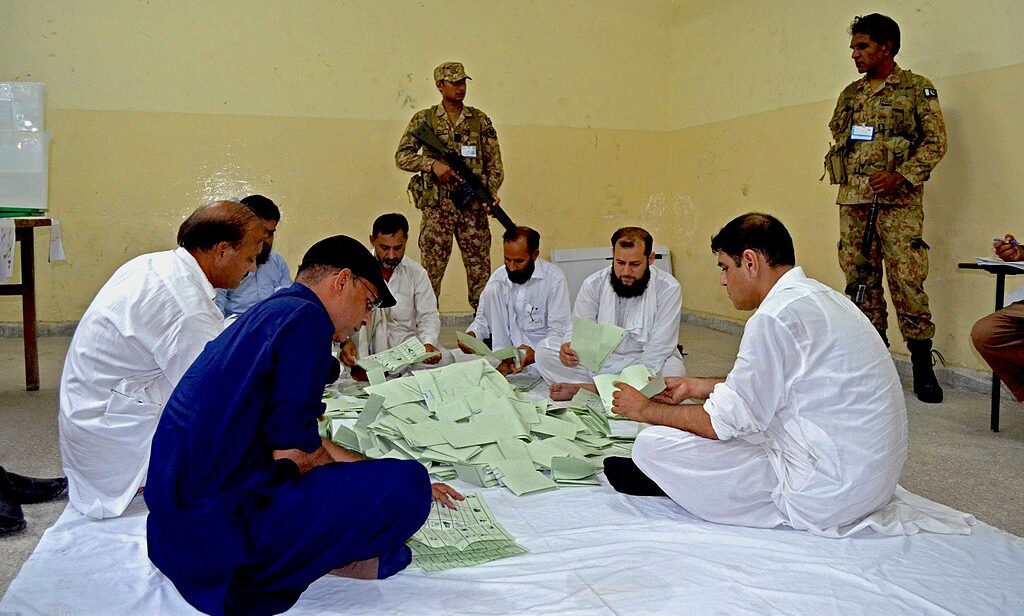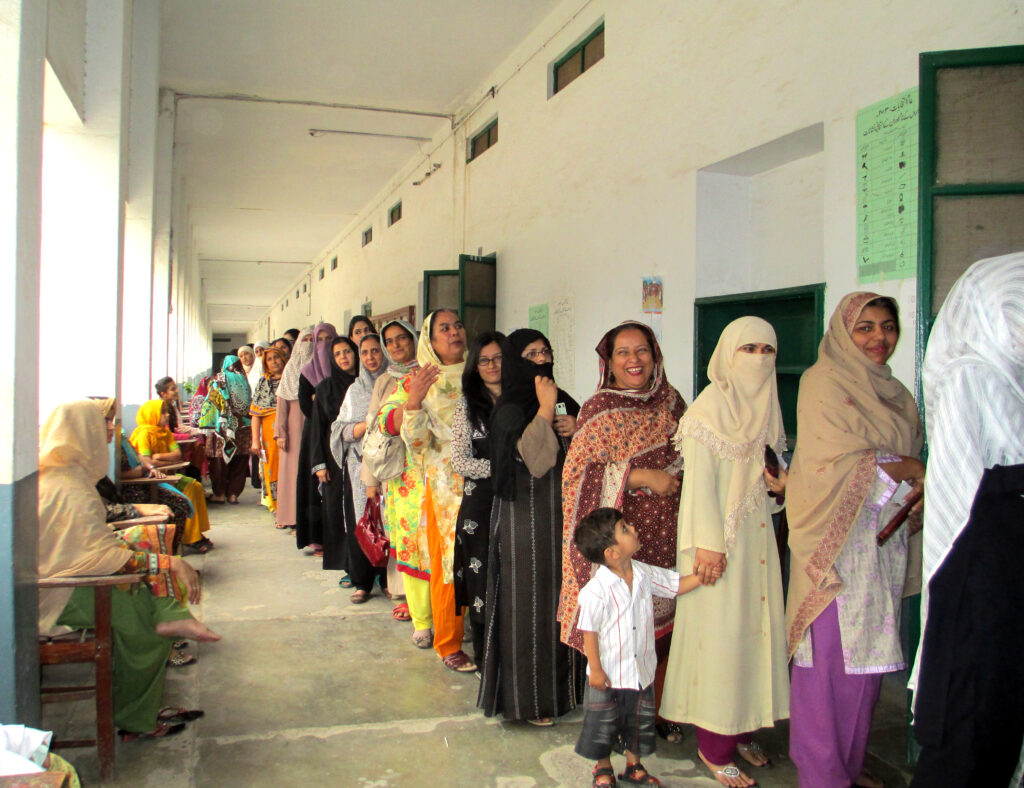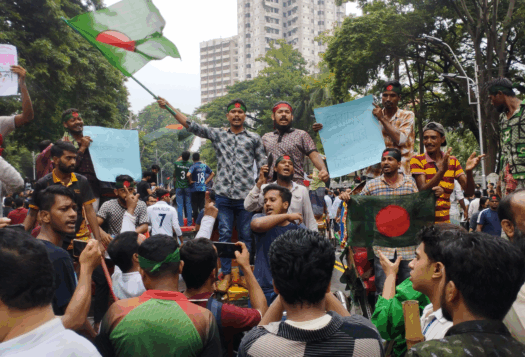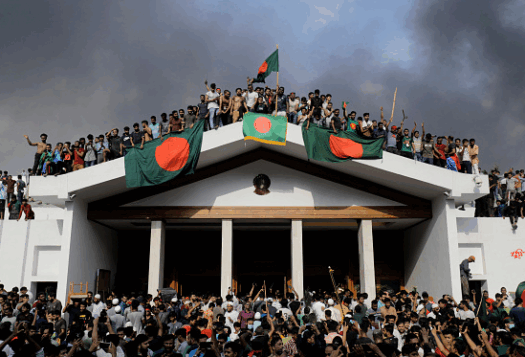
Pakistan is facing a poly-crises of political instability, economic volatility, and a resurgence of terrorism. In November 2022, after the change of command in the Pakistani military, the Tehreek-e-Taliban Pakistan (TTP) ended their ostensible ceasefire with the Pakistani state. The TTP escalated violence, increasing attacks on law enforcement agencies. January 2023 marked the deadliest month since July 2018. While a visit to Kabul by senior political and military leadership garnered fresh commitments from Afghan Taliban to tackle the TTP threat, this relative calm over recent weeks is not permanent.
Meanwhile, citing security and economic challenges, the Election Commission of Pakistan (ECP) delayed provincial elections from April 30 to October 8, 2023. The Supreme Court of Pakistan rejected this delay, ordering the ECP to hold elections on May 14 while ordering the State Bank of Pakistan to release money for elections; the government, through parliament, did not release funds earlier.
While conducting elections is expensive and risks an influx in violence, other political considerations appear at play. For example, delaying the vote could create a level playing field for all political actors who faced political victimization from state institutions. Despite the Supreme Court’s orders that diminished the ECP’s cited security and financial threats, there are currently no public assurances that provincial and federal elections will be held on schedule.
Tehreek-e-Taliban Pakistan Revived
The TTP is a globally designated terrorist organization that operates in Pakistan and Afghanistan. According to the Pakistan Institute of Peace Studies (PIPS), there were 262 terror attacks in Pakistan in 2022, including 89 attacks from the TTP, primarily against law enforcement agencies—constituting a 27 percent increase from 2021. Pakistan recorded the largest increase in terror-related deaths worldwide in 2022, with the toll rising to 980 fatalities—15 percent more than in 2021. January 2023 was the deadliest month since July 2018; 123 people lost their lives to at least 44 militant attacks. If current and past trends hold, the TTP may launch a resurgent Spring Offensive against Pakistan, similar to 2022, making 2023 a bloodier year than record-breaking 2022.
Despite horrific recent attacks, Pakistan’s overall security situation was more concerning in 2013 and 2018—previous election years.
The TTP has ideological, organizational, and personal ties with the Afghan Taliban. The United Nations Security Council has said that the Afghan Taliban’s return to power strengthened the TTP. After the Afghan Taliban assumed control of Kabul on August 15, 2021, jailbreaks in Bagram and Pul-e-Charkhi freed thousands of militants from several groups targeting Pakistan, including the TTP and ISKP. Additionally, almost seven militant groups merged with the TTP.
The Afghan Taliban holds leverage over the TTP. The Afghan Taliban mediated negotiations between Pakistan and TTP and TTP fighters enjoy safe haven in Afghanistan. Pakistan continues to remind the Afghan Taliban of their responsibility of containing terrorism emanating from their soil in bilateral and multilateral forums.
Pakistan’s Terror Threat During Election Year
Elections are set to occur this year. Citing security and economic reasons, Pakistan’s Election Commission delayed provincial elections from April to October 2023—despite seeming clarity in the constitution stipulating that elections shall be held within 90 days of the dissolution of assemblies. Security challenges are considered weak logic to delay this year’s elections. Despite horrific recent attacks, Pakistan’s overall security situation has improved since 2013 and 2018—previous election years. State authorities will come under pressure, and with rising inflation, the ruling coalition may face electoral defeat.

With rising threats from non-state actors and a balance of power deadlock between the executive, judiciary, and parliament, the state’s ability to address current challenges is being called into question. Every institution is trying to overstep the powers of other institutions in the name of upholding the Constitution. Interpreting the constitution to delay elections, the National Assembly passed a resolution “urging” the Prime Minister to not follow the Supreme Court’s order to conduct provincial elections on May 14. Simultaneously, the federal government passed a bill to limit the powers of the Chief Justice of Pakistan, exerting pressure on the primary institution tasked with upholding the Constitution.
Apart from legislative challenges to holding elections, there is an added possibility of violence in the coming provincial and national assembly elections. The army has declined to provide security for elections. The role of provincially controlled law enforcement agencies, such as the police, will be controversial without a caretaker government. This year could be a year of violence as TTP and other militant outfits have started targeting politicians and law enforcement agencies, a fact the Election Commission highlighted in their order to initially delay elections. Delaying elections by citing security risks can undermine democratic forces and can reduce electoral participation by increasing public fear.
Pakistan prioritizes its security landscape, especially when militants target the public and law enforcement agencies, otherwise state and society forget how grim the challenge of militancy is. That is among the reasons that Pakistan’s counter-terrorism gains from 2015 to 2020 have been wasted. Pakistan seems to be at square one, but may not start a high intensity campaign against TTP because of worsening economic conditions.
Pakistan’s parliamentary democracy is failing to improve and secure lives and livelihoods.
There are civil-military fissures within Pakistan’s fight against terrorism. Pakistan’s society and political class outsourced the war against terrorism to the military’s kinetic operations and did not work on deradicalization. Joint civil-military initiatives in the war on terrorism have yet to bear fruit. Recently, Pakistan’s Defense Minister and Director General ISI led a delegation to Afghanistan. In contrast to previous visits, the civilian defense minister—not military leadership—met with Afghanistan’s Deputy Prime Minster to address the TTP’s safe haven in Afghanistan, highlighting the 2020 Doha Agreement, which the Taliban have failed to adhere to in Pakistan’s case.
No Seeming End To Pakistan’s Security Challenges
Simultaneously, Pakistan’s political crisis is deepening due to instability and polarization. The political landscape is polarized to the extent that Imran Khan’s party declined to join an all-parties conference in February to discuss the resurgence of terrorism. Instability looms due to a lack of clarity over elections. Opposition leader Imran Khan demands immediate elections after dissolving PTI-held provincial assemblies, whereas the ruling Pakistan Democratic Movement coalition desires that all elections take place after the dissolution of the National Assembly in October 2023.
Parliament is largely an ineffective forum to create a consensus against terrorism. Despite garnering 16.9 million votes, the PTI has not participated in critical parliamentary decision-making because they resigned following the vote of no confidence in April 2022. While they were in power, the party was busy with accountability drives, to which they failed, wasting five years on political victimization. Pakistan’s political discourse has little to offer to a resurgence of terrorism. The media and political class continue to be enmeshed in discussions over elections, accountability cases, and the role of the establishment in politics.
Pakistan’s parliamentary democracy is failing to improve and secure lives and livelihoods. Political stability can come with the support of all political actors on national issues, such as terrorism. For this, all political parties need to unite on a common minimum agenda against the rising threat from TTP and other militant organizations because when society reacts together militants come under pressure.
Also Read: Pakistan Should Collaborate with the PTM on Counterterrorism Operations
***
Image 1: Voice of America via Wikimedia Commons
Image 2: DFID via Wikimedia Commons


